How would you like to help?
The Arab Image Foundation offers internships throughout the year.
Volunteers make an invaluable contribution to our work.
There are currently no job openings at the Arab Image Foundation.
At the Arab Image Foundation premises in Beirut, we not only care for our collection but also welcome students, researchers, artists, and members of the public eager to learn more about the AIF’s work, and photography in general.
Events
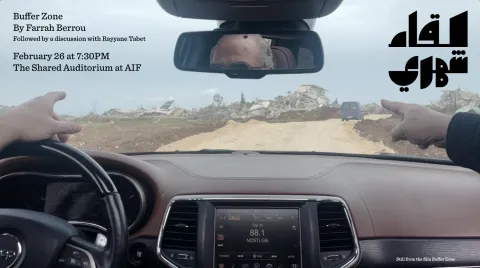
liqa’a shahri 9 | Screening of Buffer Zone
Thursday, February 26 at 7:30PM in the Shared Auditorium at AIF
This month’s liqa’a shahri features a screening of October Means Olive and Buffer Zone by Farrah Berrou, followed by a discussion with visual artist Rayyane Tabet.
October Means Olives
2023, 5’
Buffer Zone
2025, 18’
About Buffer Zone:
In this short film, part documentary, part memoir, Farrah Berrou takes us to her ancestral border village of Kfarkila in Southern Lebanon for the first time since October 8, 2023, the day Lebanon became a support front to Gaza and Palestine in the aftermath of October 7.
About Farrah Berrou:
Farrah Berrou is a Lebanese-American writer and artist based in Beirut. Her work explores themes of identity as they appear in everyday minutiae, personal archives, and memory. She currently writes Aanab News, a newsletter on Lebanese culture.
About Rayyane Tabet:
Rayyane Tabet is a visual artist living and working in Beirut.
He holds a Bachelor’s degree in Architecture from Cooper Union, New York, and an MFA from the University of California, San Diego. Tabet’s work explores the relationship between history and the built environment. His multifaceted installations often reconfigure perceptions of physical and temporal distance.
Free entrance. First come first seated.
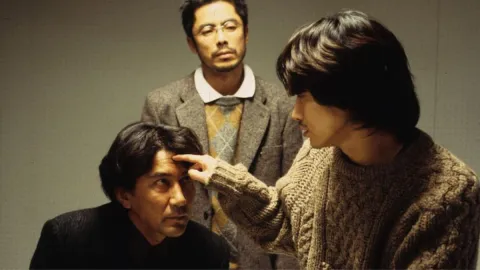
Join us every Thursday in the Shared Auditorium for a selection of films curated by Ghassan Salhab and Hisham Ashkar.
This cycle’s selection focuses on filmmakers from East Asia. Asia, the name of the continent, originates from ancient Greek and Akkadian terms referring to the Land of the Rising Sun, or the East. Co-op Cine Club tries to explore from its position on this side of the Mediterranean, the incredibly rich cinematographic work coming from the other side of this rising sun.
This Thursday, February 19 at 6PM, we are screening:
Cure
By Kiyoshi Kurosawa
1997, 1h 51m
About the film:
In late-1990s Tokyo, where the hum of fluorescent lights masks a deeper societal malaise, Kiyoshi Kurosawa’s Cure emerges as a hypnotic descent into psychological contagion, a nihilistic thriller that dissects the thin veil between civilised restraint and primal savagery. Blending the procedural rigor of a police investigation with the creeping unease of existential horror, the film follows Detective Kenichi Takabe (Koji Yakusho), a rumpled cop whose furrowed brow and weary gait betray both professional exhaustion and domestic unraveling.
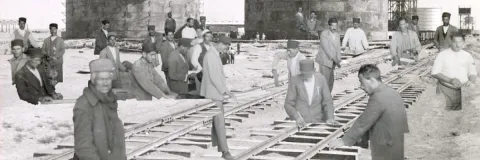
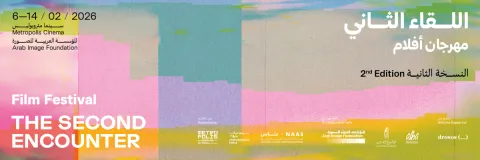
Metropolis’ Cinematheque Beirut project launches The Second Encounter film festival. Catch Scenes of Extraction at AIF’s Shared Auditorium, followed by a discussion with director Sanaz Sohrabi moderated by Vartan Avakian (online, in English).
Scenes of Extraction
by Sanaz Sohrabi
2023, 43'
Farsi with English subtitles
“Scenes of Extraction” creates an archival constellation with the still and moving images of British Petroleum Archives, documenting the expansive colonial network behind the British geophysical expeditions that spanned across Iran, but also reached other British oil operations in South East Asia. The film focuses on the parallel production of geological and ethnographic surveys, both through amateur geological footage and official technical film surveys produced by BP. It weaves through decades of archival documents to parse out the visual history of the “Reflection Seismography” method for oil exploration which was heavily tested across the Iranian oil belt despite its destructive and probable nature. Situated at the nexus between science and technology studies and media archaeology, the film traces the technical legacy of these geophysical methods that are still used in deep-sea mining and are the backbone of the global energy complex. By blending the archival and speculative modes of representing the geological past, “Scenes of Extraction” reveals the gaps and discrepancies between the archival and lived histories of extraction and the ecological ruination of its aftermath.
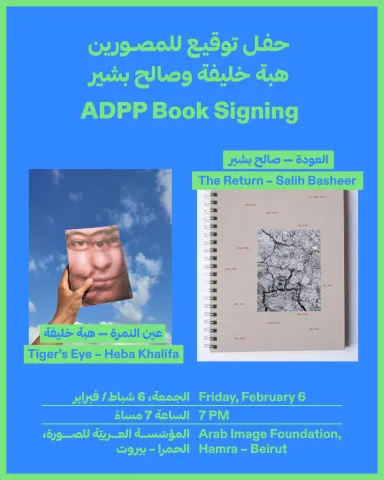
The Arab Fund for Arts and Culture is organizing a book signing featuring Salih Basheer and Heba Khalifa, two alumni of its Arab Documentary Photography Program.
Through photography, text, and archival material, these books, spanning Khartoum to Cairo, explore themes ranging from private wounds to collective healing. The Return by Salih Basheer and Tiger’s Eye by Heba Khalifa both confront violence, silence, and survival through deeply personal visual storytelling.
Copies of the books will be available for signing at the event.
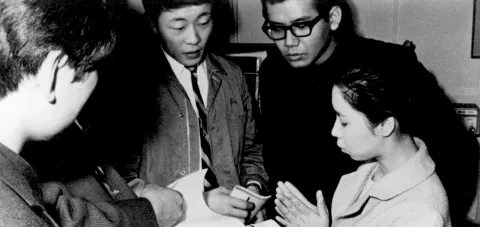
The Cooperative of Cinema Professions is launching a movie night every other Thursday at AIF’s Shared Auditorium.
Starting with A Man Vanishes by Shōhei Imamura
1967, 130'
Japanese with English Subtitles
At the end of the 1960s, Japan was affected by a wave of unexplained disappearances, with many people going missing without a trace over the years. Shōhei Imamura, who until then had explored the dynamics of Japanese society and the behavior of its members through fiction, turned to documentary filmmaking with A Man Vanishes.
Our news
June 10, 2025
The Ramazan Collection has arrived to the Arab Image Foundation. The collection consists of an estimated 12,000 glass plate negatives spanning the 1940s to the 1970s by Kirkuk based Studio Ramazan.
September 17, 2025
We are continuing our work on the 0307ra - Ramazan Collection. The collection consists of an estimated 12,000 glass plate negatives of studio portraiture spanning the 1940s to the 1970s by Studio Ramazan. Located in Kirkuk, the studio was run by Kurdish photographer Ramazan Zamdar. This project was supported by the Gerda Henkel Foundation.
January 24, 2026- 24
The Arab Image Foundation visits Zrariye, South of Lebanon, to give a free of charge workshop, focusing on salvaging damaged photographs, stabilising and digitising them, using locally sourced and low cost material. The workshop is led by AIF's preservation team, Rawan Mazeh, Jana Khoury and Leen Aoun, alongside AIF Digitisation Officer, Asadour Kdouranian, and in collaboration the founder of project Withaqeyya, Amani Rammal.
February 5, 2026
The Cooperative of Cinema Professions launches a movie night, join us every other Thursday at AIF’s Shared Auditorium.
